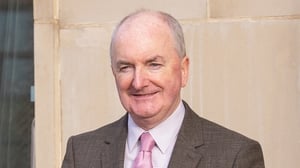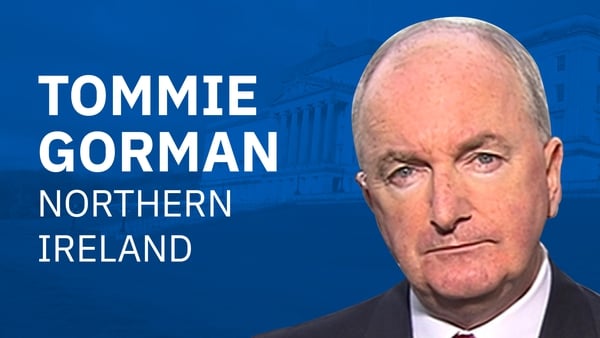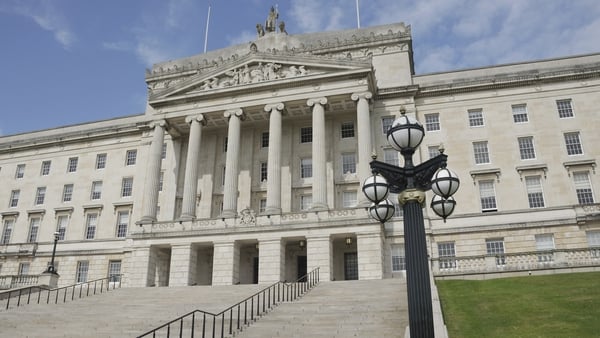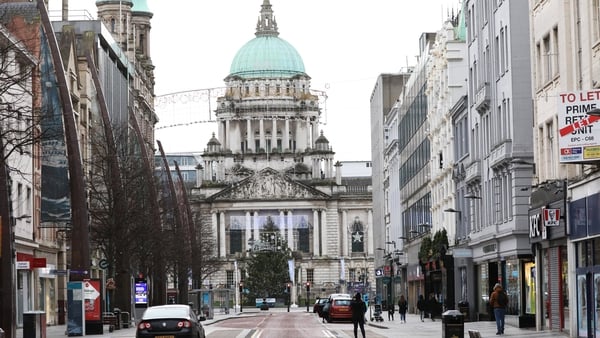James Taylor wrote the lines:
"And in between what might have been and what has come to pass
a misbegotten guess alas and bits of broken glass"
They're from his song 'Long Ago And Far Away'. The words and melody are likely to be floating inside this head next Monday and Tuesday during what will be a series of wistful gatherings to mark the 20th anniversary of the signing of the Good Friday Agreement.
Like the way veteran cowboys used to regroup in the opening scenes of the series of Magnificent Seven films, from various corners they’ll gather in Belfast to reacquaint and reminisce.
It will be hard to prevent the events from lapsing into The Damp Squib Celebrations. That's because Stormont, the power-sharing arrangement at the very heart of the Good Friday Agreement, is closed. There is no indication that the 15-month impasse will end anytime soon.
That's the obvious, indeed inevitable bleak assessment about what's planned next week.
And yet ... widen the lens, give silence its space and a different perspective emerges. Should we call next Tuesday "To John Day"? Is it the occasion when we should remind ourselves of the contribution John Hume has made to Irish history?
More than any other individual - living or dead - John Hume managed to put a stop to the awful killing. The Good Friday Agreement is testimony to the genius of his imagination, the wizardry of his words and the generosity of his spirit.
He turned 81 in January. As a result of illness, nowadays he has difficulty remembering names and faces and some of the most basic things. He rarely attends public events.
Our indebtedness to him for the way he carried the cross of The Troubles and refused to buckle under its weight has an equivalence in the boundless nature of his wife's love for him.
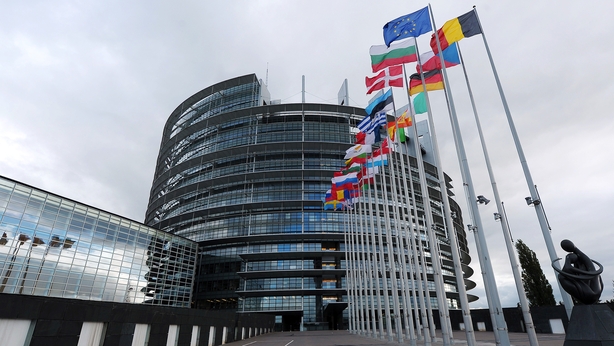
One day in the 1990s I met John Hume, in Strasbourg, in the vast open space outside the hemicycle where he and his fellow members of the European Parliament held their plenary sessions for a week of each month.
He was distracted and agitated.
Soon a medical team was summoned and he was brought off to what’s known as 'l’infirmerie' on the ground floor of the vast building.
On the way down I phoned the then RTÉ Director of News, Joe Mulholland, wondering should I call Pat Hume in Derry to let her know that her husband had taken ill. Joe advised me to wait and see how things worked out.
As the small team brought John into the care unit, a kind nurse greeted him "Ah, Monsieur Hume..." In those few words there was familiarity, a reassurance and an empathy. John’s challenged health and the wear and tear caused to him by his years carrying the cross were known to that small medical team in the European Parliament. They were used to helping him regroup and prepare for the battlefield, one more time.
Hume was a presence at every staging post of The Troubles.
The bright Saint Columb's student who went for a time to Maynooth seminary before he decided the priesthood wasn't the life for him. The founder member of Derry’s Credit Union who fell in love with a fellow teacher. The campaigner in the unsuccessful attempt to locate a major university in Derry city rather than Coleraine; the activist in the Civil Rights Movement; after The Troubles started, the fired-up, articulate voice who tried to reason with a British army officer on Magilligan beach.
John Hume - the founder member of the SDLP, with its core principles of persuasion and non-violence. The first advocate to travel to the United States and activate a whole layer of concern and goodwill when home-based efforts to halt the cycle of internecine madness kept ending in failure. The person who broke down and wept in a cemetery in Greysteel after the Trick or Treat Halloween killings.
John Hume - the leader who invited the paramilitaries over the threshold, gave them his food, his bed, his clothes, his wisdom and ultimately, his ideas and his space.
Europe was his salvation. In the United States he was welcomed by kindred spirits and there he made significant, powerful allies. In Westminster, his integrity and his obvious ability as an exceptional politician and orator were respected.
In Dublin his authority and gravitas were admired in all quarters.
But it was in Europe that Hume, like Cuchulain, found the bradán feasa. It gave him the inspiration and the formula to end the cycle of slaughter.
Sometimes after an evening in his favourite restaurant, Maison de Tanneurs, followed by a nightcap in The Aviator, he'd bring a visiting party of journalists to the bridge over the river Rhine between Strasbourg in France and Kehl in Germany.
He'd say: "These tribes killed each other for centuries, the ownership of disputed land changed hands time and time again but now the French and the Germans deal with difference through politics."
In summer time he would occasionally visit Bordeaux vineyards and explore the traditions of Lynch Bages, Hennessy and Kirwan and their Irish links to mainland Europe dating back hundreds of years.
Further north, towards Limoges, sits the village of Oradour-sur-Glane (below). In June 1944, aware they were losing the war, the SS massacred 642 villagers, including 205 children. The village has been kept exactly as it was, right down to the Mayor’s car, still rusting on the main street, as a memorial to how humans can behave when rage replaces reason.
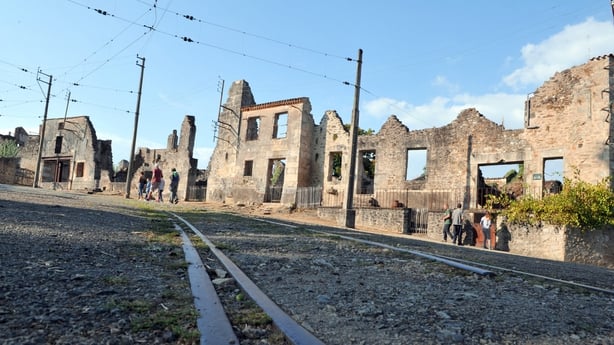
Hume's work as an MEP allowed him to absorb and process the lessons of European history and the example of the European Union.
As social democrats, the SDLP were aligned to the Socialists grouping. He saw, close-up, the workings of fellow-socialist, Jacques Delors, who served as a member of the European Parliament, before he was appointed French Finance Minister, and then became the most dynamic president of the European Commission for the ten-year period up to 1995.
He also observed the relationship between Francois Mitterrand, the French president, and German chancellor, Helmut Kohl, whose eldest brother died as a teenage soldier, fighting on the losing side in World War II.
Often at summits of EU leaders, when there was deadlock in negotiations about funding provisions for education programmes or agriculture supports, Kohl would quietly stretch deep into his wallet and acknowledge the weight of history. Delors, modest in his ways, was constantly stressing the need to redistribute resources from richer to poorer regions.
Hume blossomed in the climate of reconciliation principles that drained the poison from disputes that had occurred and reoccurred over centuries. He adapted and moulded those concepts to dovetail with his own way of thinking.
Just as Europe energised Hume, it influenced Ireland's relationship with its nearest neighbour in a way that was probably not imagined when the two countries joined what was called the EEC in 1973.
On 27 May 1990, 28-year-old Nick Spanos and 24-year-old Stephen Melrose and their partners settled their bill in a restaurant in the Dutch town of Roermond and walked to their parked car.
They were ambushed by an IRA gang who took the two men in short haircuts to be British army members from the RAF base across the nearby German border. It was a cynical attempt to spread the toxic virus to mainland Europe. The mortally wounded men were in fact Australians, over on a short holiday break from London.
I was sharing a Brussels office at the time with the Correspondent of ABC Australia, Lee Duffield. I felt a deep sense of shame and told my Australian pal that such killings were not done in my name.
Some of the friendships made with British journalists during those Brussels years survive to this day. Our natural kinship was a small example of the bonding that happened, effortlessly, at so many levels in that European setting. We spoke the same language; we often had the same interests. The self-confidence developed by Ireland, from getting out from its status as a small, distant island beyond a larger island, allowed some of the historic baggage to lose its relevance.
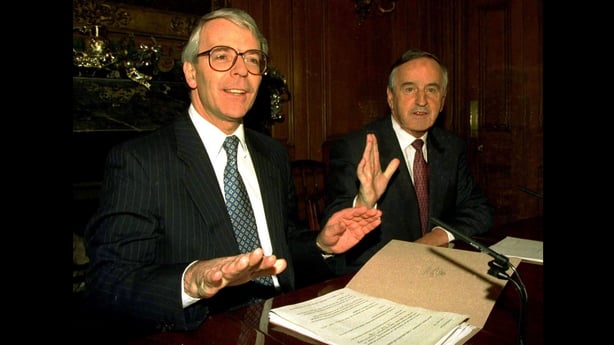
Membership of a wider family facilitated the relationship between next door neighbours to be redefined and updated.
Ministers and delegations looked out for each other in negotiations. John Major tick-tacked with Albert Reynolds and later John Bruton.
Bertie Ahern hit it off with Tony Blair. And if the Irish Sea became less relevant, so too did the Irish border.
At Agriculture Councils, when farmer representatives from Ulster were struggling to get access to British delegation rooms, the IFA’s Michael Treacy saw to it that they got a briefing from the likes of Agriculture Minister Joe Walsh, or his successor Ivan Yates. Simon Coveney’s father, the late Hugh Coveney, took the very same all-island approach with Northern Ireland fishermen at the annual December Fisheries Councils.
Hume brought the principles, the practices, the resources and the weight of a post-conflict Europe into the search for a solution to The Troubles. The nuances of live and let live and the benefits of co-existence are woven into the Good Friday Agreement. When it was signed that April day in 1998, it was set fair to become the most significant political compromise, among member states, in the history of the EU.
The tragedy of the UK’s Brexit debate was it showed no understanding of how it might undermine that complex treaty that had been negotiated word-by-word, line-by-line.
There was a European dimension to the Siege of Derry and the Battle of the Boyne 300 years ago. Hume turned history into a swan by pressing for the Europe framework of the Good Friday Agreement. Borders and age-old quarrels become less relevant, less of an obstacle in the context of wider, shared identity.
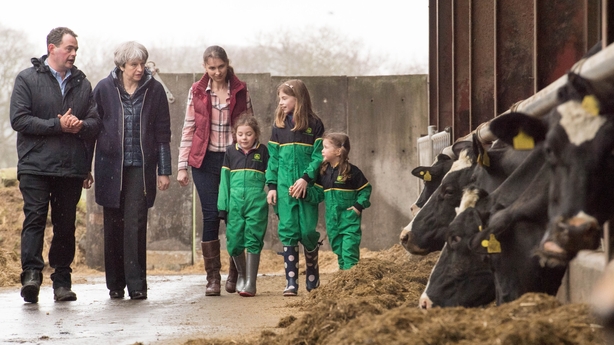
A week ago, Theresa May, the Prime Minister charged with recasting the UK’s relationship with the EU and with Ireland, arrived on a brief visit to Co Down.
Some bright spark came up with the idea that a year out from the UK’s EU departure date, the prime minister should be wound up like a clockwork toy and dispatched to Scotland, Wales, Northern Ireland and two English venues, all in a 24-hour period. It would show her "engaging with ordinary people".
She comes across as well-meaning, decent, devoid of ego or vanity. There was an unplanned moment, when she discussed her own diabetes condition with someone dealing with the same health challenge. But what she desperately needs is space to think and reflect, not an agenda of constant motion and bland photo opportunities.
June and maybe October are the deadlines for the British to produce their formula for dealing with the consequences of Brexit.
There seems little possibility of any attempt to revisit the impasse with power-sharing at Stomont before then. Given the stance taken by the DUP in the Brexit debate, it's difficult to see how polar opposite views on such a fundamental issue could be accommodated without collapsing the administration a second time. Devolved government is likely to remain parked until the Brexit question is addressed.
But in the vacuum, it would be folly to let the 20th anniversary of the signing of the Good Friday Agreement pass without celebrating the miracle of what has been achieved.
Men are no longer going to their beds dreaming of ways to kill their neighbour.
A generation is growing up, free of the guilt of not being able to halt the slaughter.
True, Brexit has given us a new reason to disagree. But Hume won the argument about spilling our sweat, not our blood.

